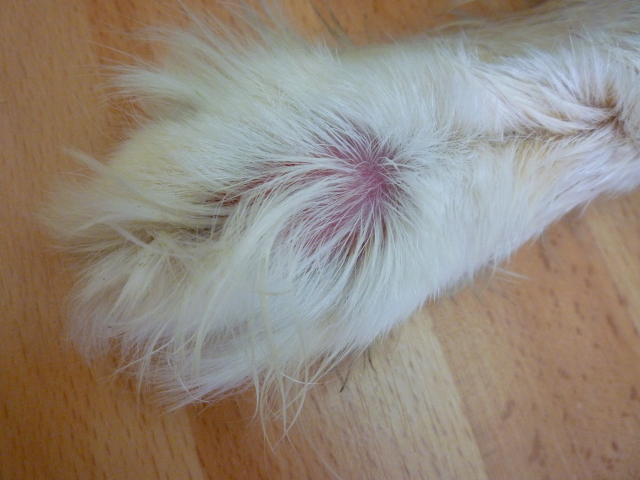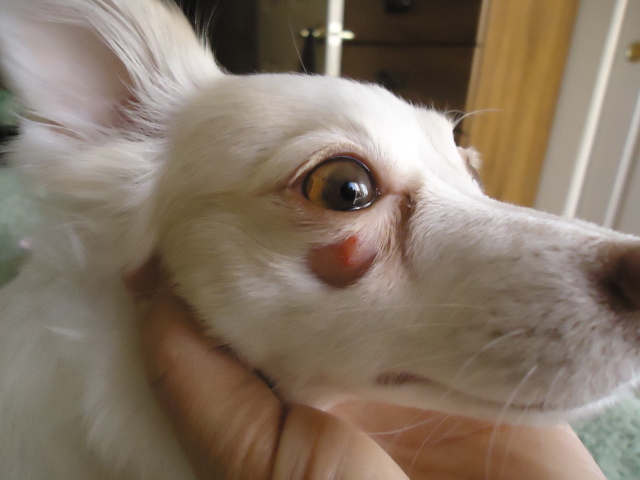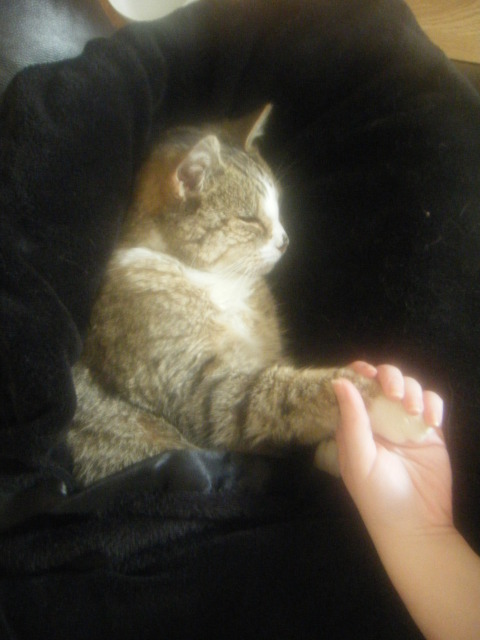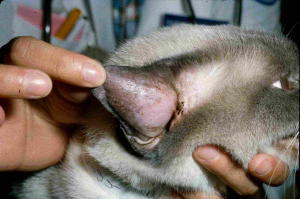QuestionRecently I took my cat to the Vet to get him checked for a urinary tract infection. He had started urinating on the carpet and I was told that that could be a possible indication of an infection.
The vet took a urine sample from my cat, by means of massaging the bladder. Immediately after the urine samples were taken, my cat started bleeding a considerable amount. The test for infection came up negative, and the vet double checked the test to ensure it was negative. After he found out about the bleeding he stated that it was extremely unusual and could offer no explaination for why it was happening. He prescribed an antibiotic for urinary tract infections just in case and advised me to return within ten days.
My cat now has traces of blood in his urine, though it's nowhere near as bad as it was after the vet visit. Do you have any possible idea what could have caused this bleeding? I kind of had doubts about the vet, he seemed very rough with the cat, but do you think I should return to him for the followup appointment or schedule it with someone else? Any advice or insights you could offer would be greatly appreciated.
Thanks!
AnswerDid your Vet check the urine for crystals? I am assuming your cat is a neutered male. Urinary crystals are quite common and can turn into stones, which can cause urethral bleeding if the stones are forced through. One way to get urine from a cat is to express his bladder manually, which means you have to squeeze the bladder with constant pressure. When this is done, it looks like you are really digging into the abdomen. The cat doesn't like it very much. This might have been what you thought was rough handling. If not, let me know. If there was some improvement with antibiotics, is sounds like he does have a urinary tract infection, which is common. It usually takes 10 days to 2 weeks of antibiotics to completely treat. If there are crystals in the urine, an x-ray would be beneficial to see if there are any stones present. If there are stones, sometimes they must be surgically removed. If there are only crystals found in the urine, a dietary change is needed. There are several urinary tract supportive diets available.

 Red irritated foot
QuestionIrritated foot
QUESTION: For the past we
Red irritated foot
QuestionIrritated foot
QUESTION: For the past we
 Dog isnt eating.
Question
Jack
I have a 21 month old Chihuahua-terrier/b
Dog isnt eating.
Question
Jack
I have a 21 month old Chihuahua-terrier/b
 Worried
Question
eye
My long-hair chihuahua (1.5yr old) has had
Worried
Question
eye
My long-hair chihuahua (1.5yr old) has had
 My old cat whos not eating well after dental surgery
Question
timmy since his surger
Hi, Im really worried a
My old cat whos not eating well after dental surgery
Question
timmy since his surger
Hi, Im really worried a
 Cat ear problem.
QuestionMy cat has had ear mites, but were treated. now
Cat ear problem.
QuestionMy cat has had ear mites, but were treated. now